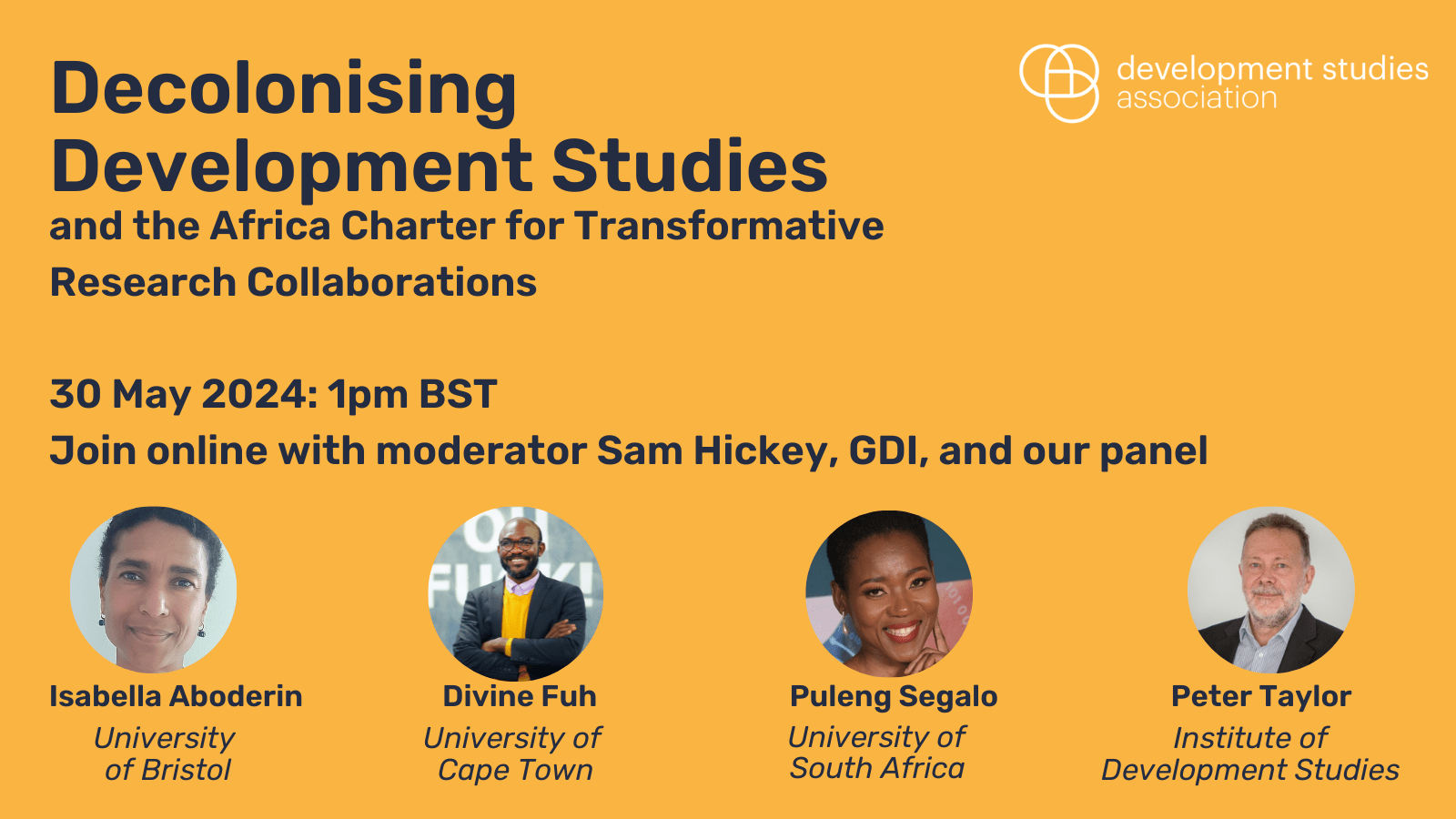Following on from the well-attended webinar in May on ‘Decolonising Development Studies’, PARC’s Research Associate Dr Eyob Balcha Gebremariam chaired three sessions at a panel as part of the recent Development Studies Association (DSA) 2024 conference.
Professor Puleng Segalo, Professor Isabella Aboderin and Dr Divine Fuh joined him to discuss “Coloniality, Epistemic Injustice and the discipline of Development Studies: deepening the calls for social justice.”
Both coloniality and epistemic injustice reinforce each other to keep theorisation, teaching and knowledge production in development studies in the whirlpool of permanent power asymmetries. Alongside other topics, our panel looked at the barriers and possibilities of going beyond the dominant social justice paradigms.
Following the panel, Eyob gave a presentation about the Africa Charter and the work we are doing.
The DSA Conference took place at SOAS University of London (School of Oriental and African Studies) from 26-28 June 2024, with the theme of “Social justice and development in a polarising world”.

PARC at the DSA Conference
At this engaging panel, a total of nine papers were presented, including:
- Reflections on the processes and principles of knowledge generation in development studies through the lens of local peoples’ perspective in Malawi
- The role and implications of large grant-funded research centres in the UK in concept generation in development research
- Exploration of deaf-epistemologies to decolonise practices of inclusion with lessons from Colombia
There was a presentation of experience shared from the “Living Decoloniality” podcast, a reflexive presentation by doctoral students reflecting on the question “Why are you doing research in your home country?” and reflections on learning, unlearning and relearning while conducting social justice research projects with communities in Africa.
The third session covered three topics:
- The challenges of digital development and how to ensure transformational deliberation is embedded and superficial representation is avoided
- The challenges of addressing coloniality in development practice and just knowledge practices
- A reflection on children’s epistemologies as a perspective in decolonising international development research
All three sessions initiated extensive dialogue and academic debate on conceptual, methodological and practical cases. Both virtual and in-person participants attended each session. On average, there were 15 participants for each session.
Decolonising Development Studies webinar
You can view the webinar that took place in May below.

